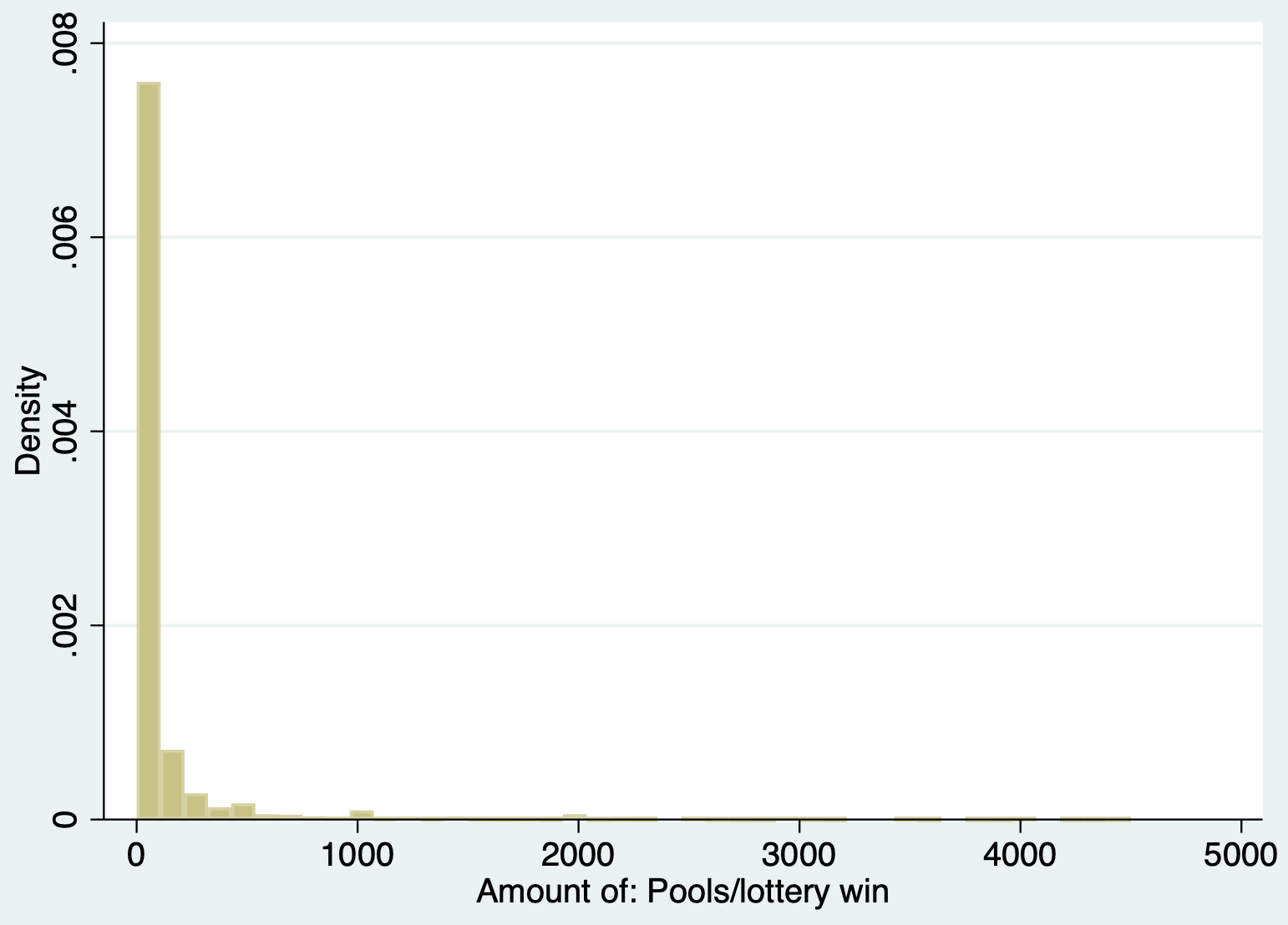Overweight and obesity are a global health policy concern. Yet, we know little about successful policy interventions (Sawers and Dobbs 2014), above and beyond the spillover effects of overweight on health insurance (Michaud et al. 2009). Individuals face both monetary and time constraints to stay at a healthy weight, and individuals with lower socioeconomic status are more likely to be overweight (Sallis et al. 2009).
However, interpreting the effect of earned income on overweight is far from simple, as it captures the effect of returns to education, alongside other potential confounders. Maintaining a healthy weight might well be a luxury where individuals face high costs of market inputs (e.g. fresh foods, gym membership, access to housing in healthy environments) or access to healthcare in the event of illness (Cheng et al. 2018), and income can change individuals’ reference points (Caporale et al. 2009). It is therefore critical to distinguish the effects of earned income from unearned to determine the causal effect of income on overweight.
Unearned income, health, and overweight
Most of the available research indicates that money windfalls have no impact on overweight and BMI measurements. Cawley et al. (2010), for example, exploit evidence from a reform in the US social security notch, namely, an exogenous variation of identical retiree’s income, and examine individuals’ weight including obesity. They document no effect of income shocks on overweight and obesity.
Examining the effect of lottery wins is an alternative strategy for investigating windfall income effects. The significance of looking at lottery wins is that the causal effect of income shocks may differ depending on the source of income shock. A reduction in social security income or an unexpected bequest might not be perceived as a ‘salient’ windfall. An alternative strategy that exploits the effect of bequest income shocks shows that such shocks have no significant effects on health (Kim and Ruhm 2012). In contrast to lottery wins, income shocks from inheritances can be anticipated.
Other evidence on income effects comes from unanticipated changes in taxation. Some studies show that tax rebates had a large and positive impact on reducing feelings of stress and worry (Lachowska 2017).
Finally, experimental evidence such as Cawley and Price (2011) find that worksite programmes offering modest cash rewards for specific reductions in weight (e.g. $30 per quarter for a 10% weight reduction) were not successful. Moreover, the effectiveness of incentives appears to change over time: Finkelstein et al. (2007) present evidence of modest weight loss at three months but no difference after six months.
Lottery wins and delayed effects
The development of datasets that include lottery wins have allowed for studies on income effects on health and health-related behaviours to proliferate. Lindahl (2005) finds that a lottery income gain improves health (reduces mortality): a 10% increase in exogenous income generates 0.01–0.02 standard deviations of better health. Apouey and Clark (2015) do not find evidence that lottery wins affect physical health, but they find an effect on mental health. Cesarini et al. (2016) find that although lottery wins do not exert major changes in child outcomes, wealth reduced the risk of obesity.
However, do we find similar effects on overweight as in other health outcomes? Are the effects contemporaneous after the income windfall or is there a delay?
In our paper (Costa-Font and Györi 2023), we exploit the variation in windfall income shocks after lottery wins in the UK, where a large proportion of the population plays the lottery, and consider time and individual specific fixed effects alongside a set of relevant controls. Given that lottery wins are uncorrelated to an individual’s health-related choices, we expect our estimates to provide evidence of the effect of income on overweight.
Figure 1 reports the distribution of the lottery wins as we observe them in the sample (large wins are not visible when they refer to a relative small number of individuals). As expected, most individuals report no lottery win, and the distribution of wins spreads across different amounts. During our period of analysis, 14,953 individuals people got some win, 1,639 got a £250 win, and 873 got at least £500 or more. We restrict our sample to lottery players and focus on the effect of any lottery wins as well as the amount of the win, alongside the presence of large lottery wins, namely wins exceeding £500.
Figure 1 Density of lottery wins in the study sample
Note: Sample is restricted to individuals who reported at least one lottery win over the 16-year survey period, sample BHPS.
We find no evidence of any contemporaneous effect of an income windfall on the likelihood of being overweight. However, we do find significant evidence of lagged effects. More specifically, we document a reduced likelihood of being overweight 12 months after winning the lottery. A £1,000 win reduces obesity up to 3 percentage points, or a 5% reduction. Estimates are heterogeneous across working hours and educational attainment.
We find that a lottery win gives rise to an average decrease in overweight for people with low educational attainment (primary education or less), though the effect is nonlinear when BMI is considered. According to the effect size on overweight, a £1,000 windfall among low-education individuals would reduce overweight by 4.5–5 percentage points. This effect corresponds to a 7–8% reduction compared to average overweight.
However, we do not find such effects of lottery wins among people who work long hours (more than 35 hours per week). This is consistent with the differential effect of income on overweight among time-constrained (time-poor) individuals. Finally, in examining mechanisms, we find a 2-percentage-point increase in the probability of exercising at the same time (which could explain a lagged reduction in overweight).
Policy implications
This evidence supports the notion that exogenous income shocks have a delayed effect on overweight people and vary across individuals. When the effect is examined over the course of the lottery win, we find a non-negligible reduction in overweight. However, the evidence suggests no effect among people who work long hours and a reduction in overweight among people with less education. Our estimates indicate that income transfers take some time to affect individuals’ overweight and exert effects among specific groups (low-education individuals), who appear to respond differently to a windfall income change, and those who are not time constrained to allocate their time to healthy lifestyles. Time restrictions reduce opportunities to lose weight and prevent improvements in purchasing power from being translated into healthier behaviours.
References
Apouey, B, and A E Clark (2015), “Winning big but feeling no better? The effect of lottery prizes on physical and mental health”, Health Economics 24(5): 516–38.
Au, N, and D W Johnston (2015), “Too much of a good thing? Exploring the impact of wealth on weight”, Health Economics 24(11): 1403–21.
Caporale, G M, Y Georgellis, N Tsitsianis, and Y P Yin (2009), “Income and happiness across Europe: Do reference values matter?”, Journal of Economic Psychology 30(1): 42–51.
Cawley, J and J A Price (2011), “Outcomes in a program that offers financial rewards for weight loss", in Economic Aspects of Obesity, University of Chicago Press.
Cawley, J, J Moran, and K Simon (2010), “The impact of income on the weight of elderly Americans”, Health Economics 19(8): 979–93.
Cesarini, D, E Lindqvist, R Östling, and B Wallace (2016), “Wealth, health, and child development: Evidence from administrative data on Swedish lottery players”, Quarterly Journal of Economics 131(2): 687–738.
Cheng, T C, J Costa-Font, and N Powdthavee (2018), “Do you have to win it to fix it? A longitudinal study of lottery winners and their health-care demand”, American Journal of Health Economics 4(1): 26–50.
Costa-Font, J, and M Györi (2023), “Correction to: Income windfalls and overweight: evidence from lottery wins”, Empirical Economics 1(1).
Finkelstein, E A, L A Linnan, D F Tate and B E Birken (2007), “A pilot study testing the effect of different levels of financial incentives on weight loss among overweight employees”, Journal of Occupational and Environmental Medicine 49(9): 981-989.
Lachowska, M (2017), ":The effect of income on subjective well-being evidence from the 2008 economic stimulus tax rebates", Journal of Human Resources 52(2): 374-417.
Lindahl, M (2005), "Estimating the effect of income on health and mortality using lottery prizes as an exogenous source of variation in income", Journal of Human Resources 40(1): 144-168.
Michaud, P C, A Sanz-de-Galdeano, and G Brunello (2009), “The rise of obesity in Europe: An economic perspective”, VoxEU.org, 6 October.
Sallis, J F, B E Saelens, L D Frank, T L Conway, D J Slymen, K L Cain, J E Chapman, and J Kerr (2009), “Neighborhood built environment and income: examining multiple health outcomes”, Social Science and Medicine 68(7): 1285–93.
Sawers, C, and R Dobbs (2014), “Obesity: A global economic issue”, VoxEU.org, 13 December.



